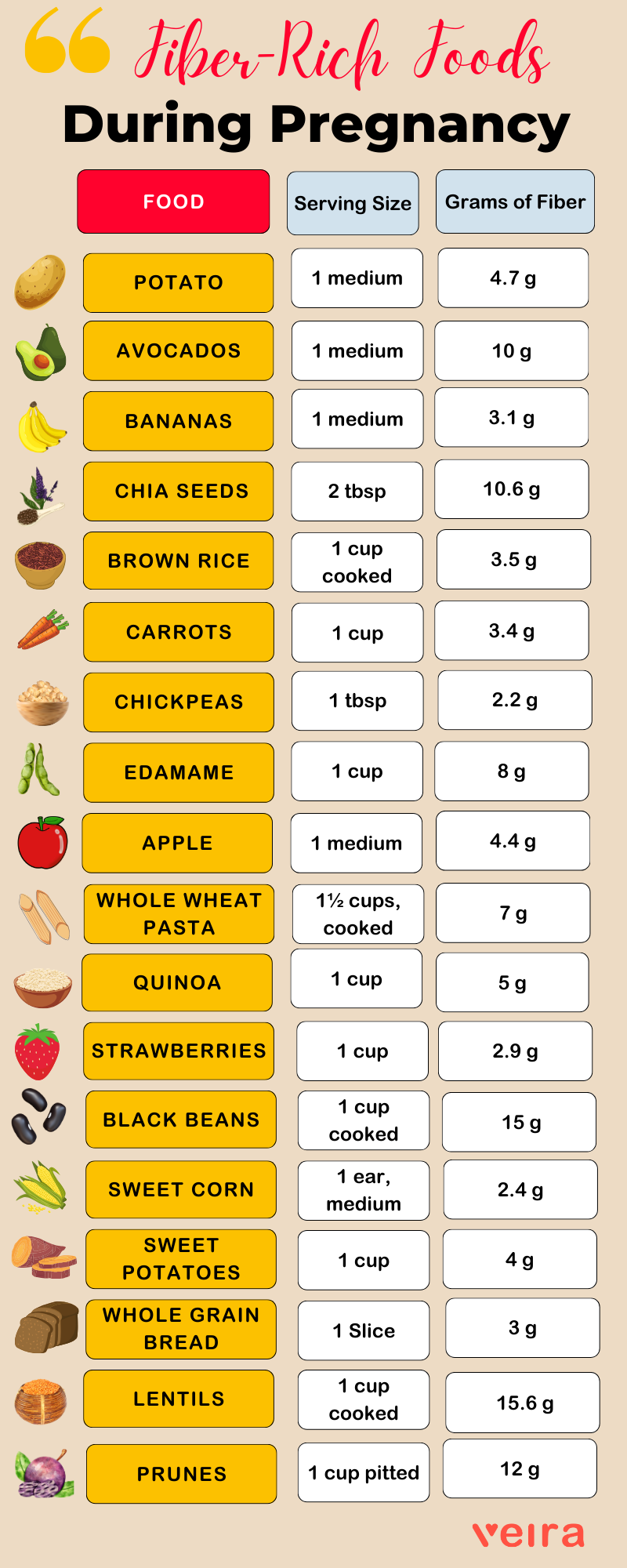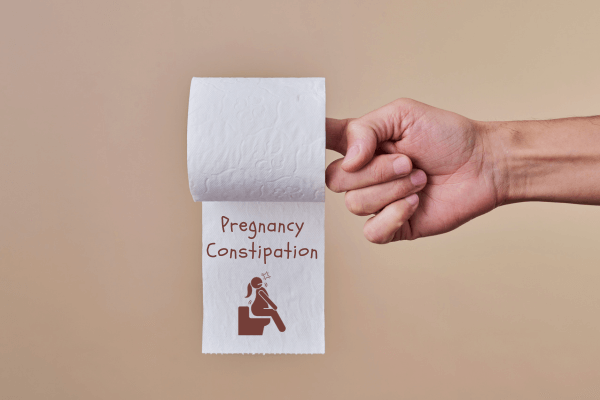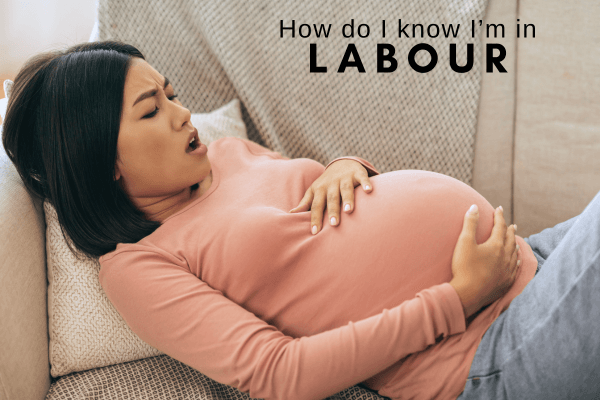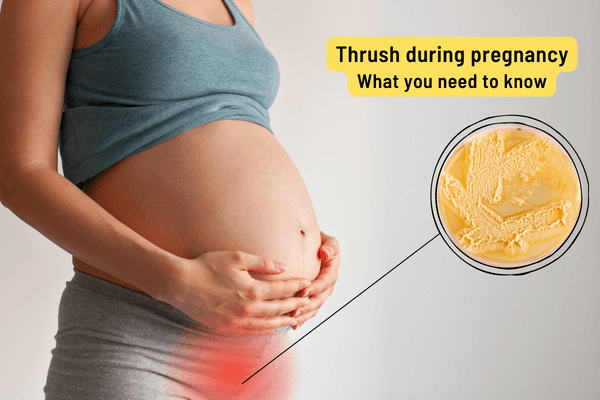Key Points
- Cause of pregnancy constipation: Pregnancy hormones, prenatal iron supplements and pressure on intestines can all cause constipation. It can start as early as the first trimester and in some cases worsen as pregnancy progresses. In some cases it can continue into or start in postpartum.
- Prevention and Management tips: Combat pregnancy constipation with lifestyle changes. Drink ample water to soften stool and support digestion. Eat Fiber-Rich Foods and probiotic foods for regular bowel movements. Activities like walking or yoga can help stimulate digestion and ease constipation.
- Avoid Medications without professional advice: Consult with healthcare providers before using laxatives or other medications.
- When to seek Medical Advice: Contact your doctor if constipation is severe, persistent, or accompanied by pain or bleeding.
If you’re pregnant, constipation might be one of those less-talked-about challenges you’re facing. It’s not just about less frequent bathroom visits; it can also mean abdominal discomfort and hard stools too. Why does this happen? Well, those hormonal shifts that come with pregnancy, the growing pressure on your uterus, and even the iron in your prenatal vitamins all play a role.
Keep reading as we dive into understanding constipation during pregnancy – why it happens and how you can find relief.
Why Am I Constipated?
Constipation during pregnancy is a common issue that can leave you feeling uncomfortable. But why does it happen? As your body undergoes various changes to accommodate the growing baby, several factors contribute to constipation. Hormonal shifts, pressure on the intestines, and the iron in prenatal vitamins can all slow down digestion, making passing of stool difficult.
Also Read – What is Preeclampsia? Diagnosis & treatment
When Does Constipation Generally Start During Pregnancy?
Around 30% of pregnant women experience constipation, which is generally described as infrequent bowel movements or difficult evacuation. It is a common symptom early in pregnancy, often beginning in the first trimester. This is due to hormonal changes that slow down the digestive system, and the situation can be exacerbated by prenatal vitamins high in iron. It’s important to note that constipation can vary among individuals:
- First Trimester: Many women start experiencing constipation early on due to increased progesterone levels (which relax the muscles in the digestive tract) and decreased motilin hormone levels (which help move food from your small intestine to your large intestine).
- As Pregnancy Progresses: As the uterus expands, it can put pressure on the intestines, potentially worsening constipation in the second and third trimesters.
- Individual Factors: Diet, lifestyle, and individual health conditions also play a significant role in how early and how severely one might experience constipation during pregnancy.
Understanding the typical timeline and contributing factors can help in preparing and managing this discomfort better and more confidently.
Also Read – First Trimester of Pregnancy
Managing and Preventing Constipation During Pregnancy
Effective management and prevention of constipation during pregnancy involve a few key lifestyle changes:
- Stay Hydrated: Ensure you’re drinking plenty of water daily. This helps soften the stool, making it easier to pass stool. It also supports overall digestive health.
- Eat Fiber-Rich Foods: Incorporate a variety of fiber-rich foods in your diet, such as fresh fruits, leafy vegetables, whole grains, and legumes. These foods aid in digestion and help maintain regular bowel movements.
- Increase Intake of Probiotic Foods: Fermented and Probiotic foods such as yoghurt, kimchi, kvass etc can help alter the colonic flora and might also improve bowel function.
- Consult Before Using Laxatives: If you’re considering laxatives for relief, it’s crucial to first discuss with your healthcare provider so that they can guide you on safe options.
- Regular Gentle Exercise: Engage in gentle exercises like walking, stretching, or prenatal yoga. Regular physical activity can stimulate the digestive system and help alleviate constipation.
By integrating these habits into your daily routine, you can significantly reduce the discomfort of constipation and enjoy a healthier pregnancy.
Also Read – Pregnancy Nutrition Guide: What food to eat?

When can I expect constipation to end while I'm pregnant?
The duration of constipation during pregnancy can vary, but here are some key points to consider:
- Variation by Individual: The timeline for constipation to end is different for each woman. For some, it may ease as hormonal levels adjust, while for others, it could last throughout the pregnancy.
- Postpartum Relief: Many women find that constipation resolves after giving birth, as the body starts to return to its pre-pregnancy state.
- Monitoring Postpartum Changes: Keep an eye on your digestive health even after delivery, as the postpartum period also brings changes that might affect bowel movements.
Remember, each pregnancy is unique, and these timelines can vary. Consult with your healthcare provider for personalized advice.
When Should I Contact My Ob-Gyn for Constipation During Pregnancy?
It’s important to know when constipation during pregnancy warrants a call to your doctor. Here are some key indicators:
- Severe or Persistent Constipation: If constipation lasts longer than a week or is intensely uncomfortable, it’s time to seek medical advice.
- Accompanied by Pain or Bleeding: If constipation is accompanied by abdominal pain, cramping, or bleeding, these could be signs of a more serious condition.
- Ineffectiveness of Home Remedies: If dietary changes, hydration, and exercise aren’t helping, your doctor can provide safe, pregnancy-appropriate treatment options.
- Other Concerning Symptoms: Any other unusual symptoms, like significant changes in bowel habits or severe nausea, should be discussed with your healthcare provider.
If you’re ever in doubt, it’s always better to err on the side of caution and consult your doctor for guidance and support.
Takeaway
Pregnancy is a unique journey, and experiencing constipation is a common part of it. While it can be uncomfortable, following the tips mentioned here can help you manage and prevent constipation, making your pregnancy journey smoother and more enjoyable.
Remember, every pregnancy is unique, so it’s crucial to listen to your body and seek advice from your healthcare provider about constipation or any other concerns during your pregnancy journey.
Experience a Supported Pregnancy with Veira Life
Your pregnancy is a journey filled with unique experiences and Veira Life is here to support you through every step of it. We understand the importance of having the right support and expert guidance during this time. By joining us, you’ll access resources and personalized assistance to navigate your pregnancy with ease and confidence. Register with Veira Life today, and step into a world of dedicated support, ensuring a healthy and joyful pregnancy.







